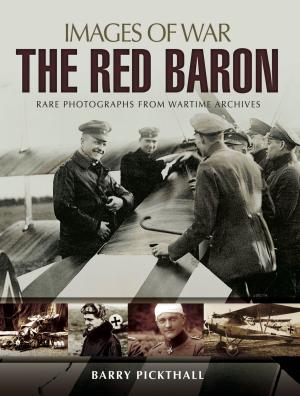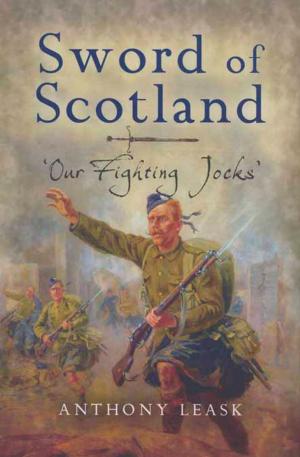| Author: | Brian Best | ISBN: | 9781473870666 |
| Publisher: | Pen and Sword | Publication: | September 30, 2015 |
| Imprint: | Pen and Sword Military | Language: | English |
| Author: | Brian Best |
| ISBN: | 9781473870666 |
| Publisher: | Pen and Sword |
| Publication: | September 30, 2015 |
| Imprint: | Pen and Sword Military |
| Language: | English |
After a slow start, the Second World War produced an enormous number of war correspondents. Correspondents like Ernest Hemingway, John Dos Passos and George Orwell were all inspired to put their experiences on the printed page. Hemingway and his wife, Martha Gellhorn, went on to cover the D-Day Landings and the final victory in Germany.
The British Broadcasting Corporation was the first to use live broadcasts from the front. Encouraged by the RAF's favourable acceptance of Richard Dimbleby's commentary from the flight deck of a Lancaster bomber over Berlin, which was piloted by the legendary Guy Gibson VC, the public's reaction was overwhelmingly positive.
Increasingly, war correspondents sought danger by flying bombing missions, parachuting with airborne forces and taking part in amphibious attacks against the enemy. Many were killed in plane crashes, by sniper fire and freak accidents. Several performed acts of bravery recognized with a 'Mentioned in Despatches' and in some cases, a gallantry award. As a consequence, many were killed – the United States alone has a memorial dedicated to more than eighty.
Although there was much 'purple prose' reporting, there was also some excellent writing, which has stood the test of time. To name a few such journalists like Alan Moorehead, Robert Sherrod, Richard Tregaskis, Osmar White, Martha Gellhorn and Chester Wilmot, who were all perceptive eyewitnesses to the world's greatest war.
Reporting the Second World War is an in-depth account of the war, as seen through the newspapers of the day. It illustrates the momentous efforts of the correspondents and is a timely reminder of their dedication, skill and bravery in reporting the Second World War.
After a slow start, the Second World War produced an enormous number of war correspondents. Correspondents like Ernest Hemingway, John Dos Passos and George Orwell were all inspired to put their experiences on the printed page. Hemingway and his wife, Martha Gellhorn, went on to cover the D-Day Landings and the final victory in Germany.
The British Broadcasting Corporation was the first to use live broadcasts from the front. Encouraged by the RAF's favourable acceptance of Richard Dimbleby's commentary from the flight deck of a Lancaster bomber over Berlin, which was piloted by the legendary Guy Gibson VC, the public's reaction was overwhelmingly positive.
Increasingly, war correspondents sought danger by flying bombing missions, parachuting with airborne forces and taking part in amphibious attacks against the enemy. Many were killed in plane crashes, by sniper fire and freak accidents. Several performed acts of bravery recognized with a 'Mentioned in Despatches' and in some cases, a gallantry award. As a consequence, many were killed – the United States alone has a memorial dedicated to more than eighty.
Although there was much 'purple prose' reporting, there was also some excellent writing, which has stood the test of time. To name a few such journalists like Alan Moorehead, Robert Sherrod, Richard Tregaskis, Osmar White, Martha Gellhorn and Chester Wilmot, who were all perceptive eyewitnesses to the world's greatest war.
Reporting the Second World War is an in-depth account of the war, as seen through the newspapers of the day. It illustrates the momentous efforts of the correspondents and is a timely reminder of their dedication, skill and bravery in reporting the Second World War.















